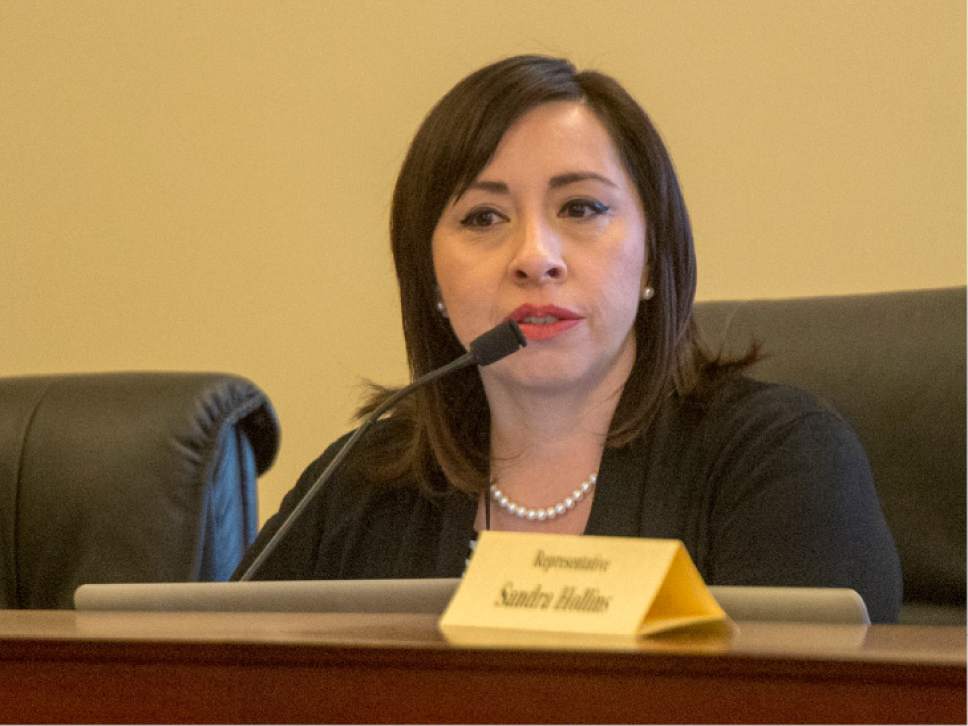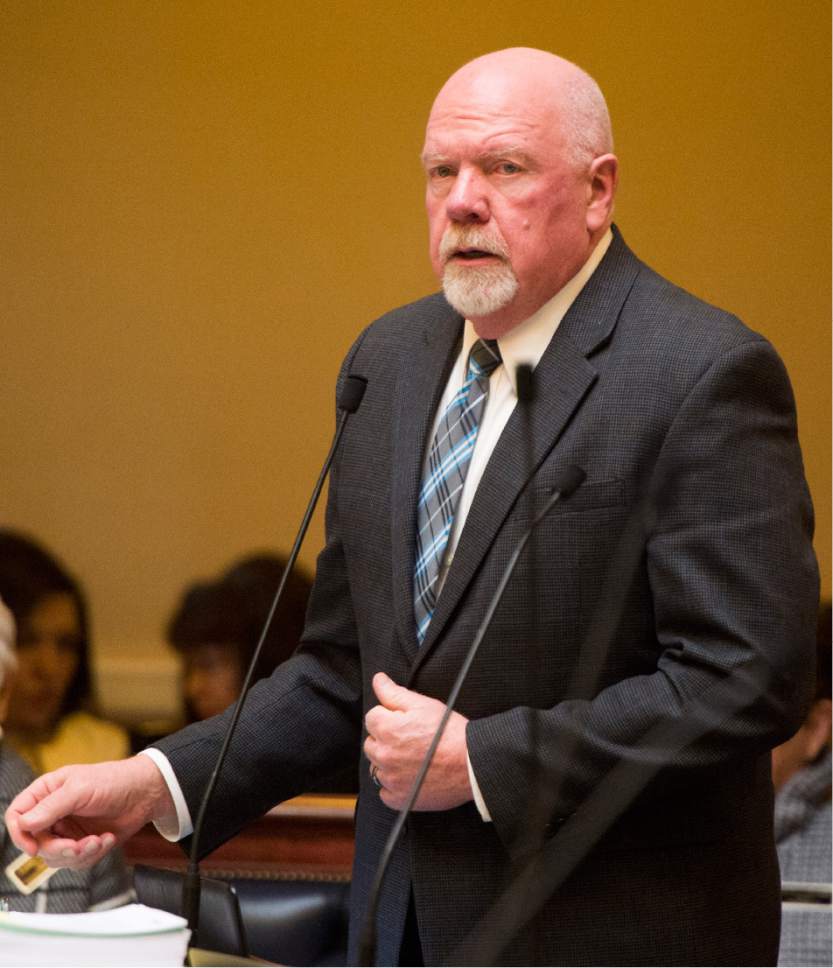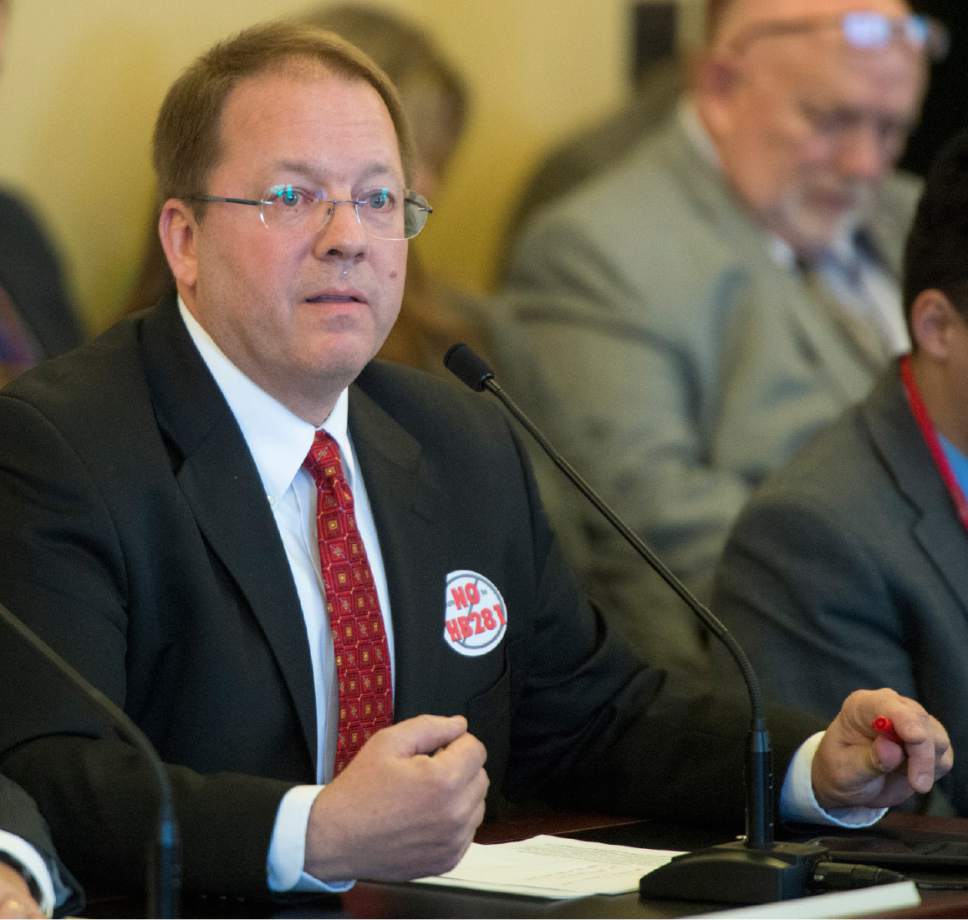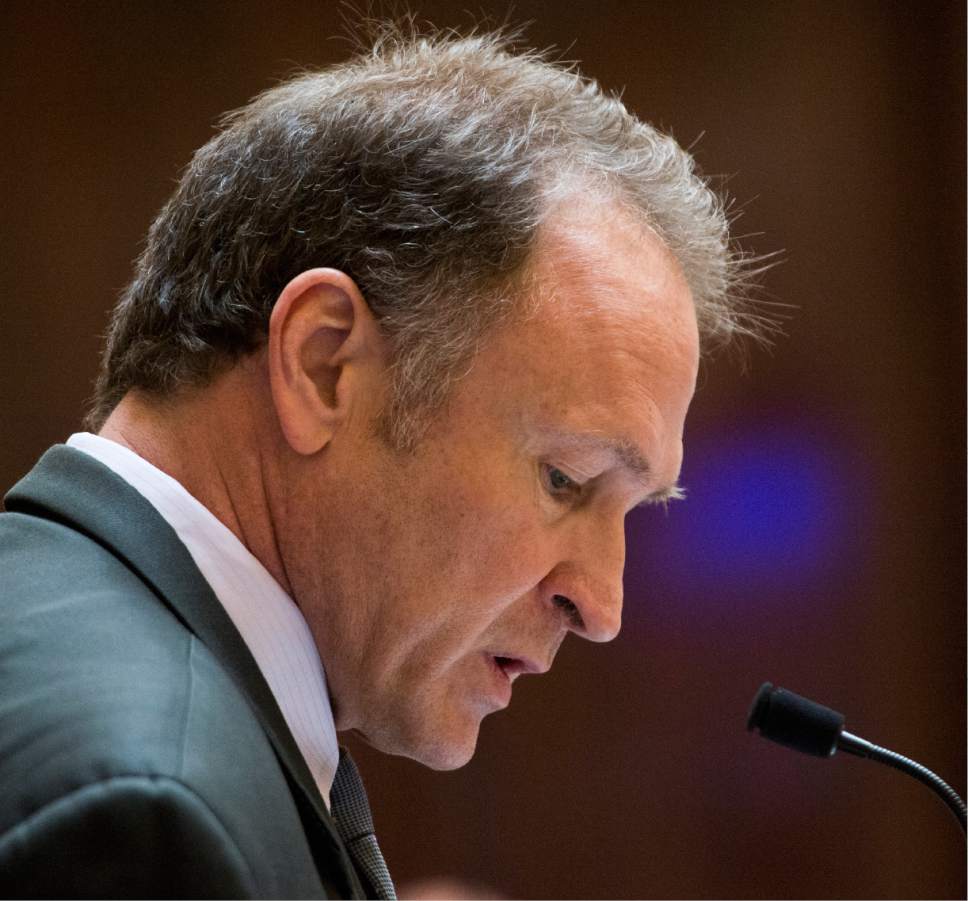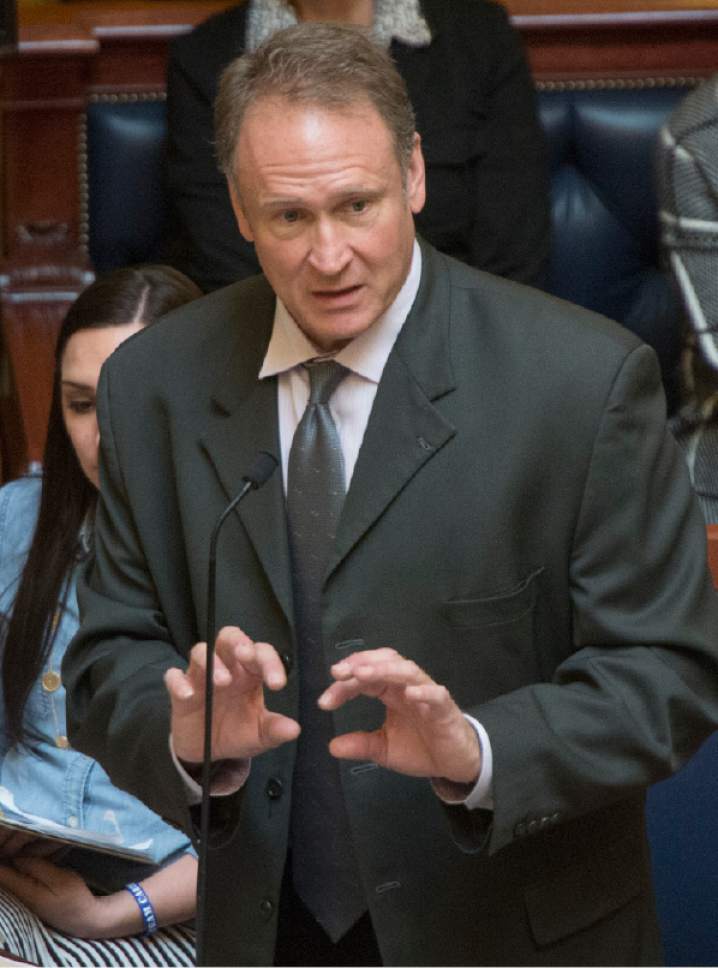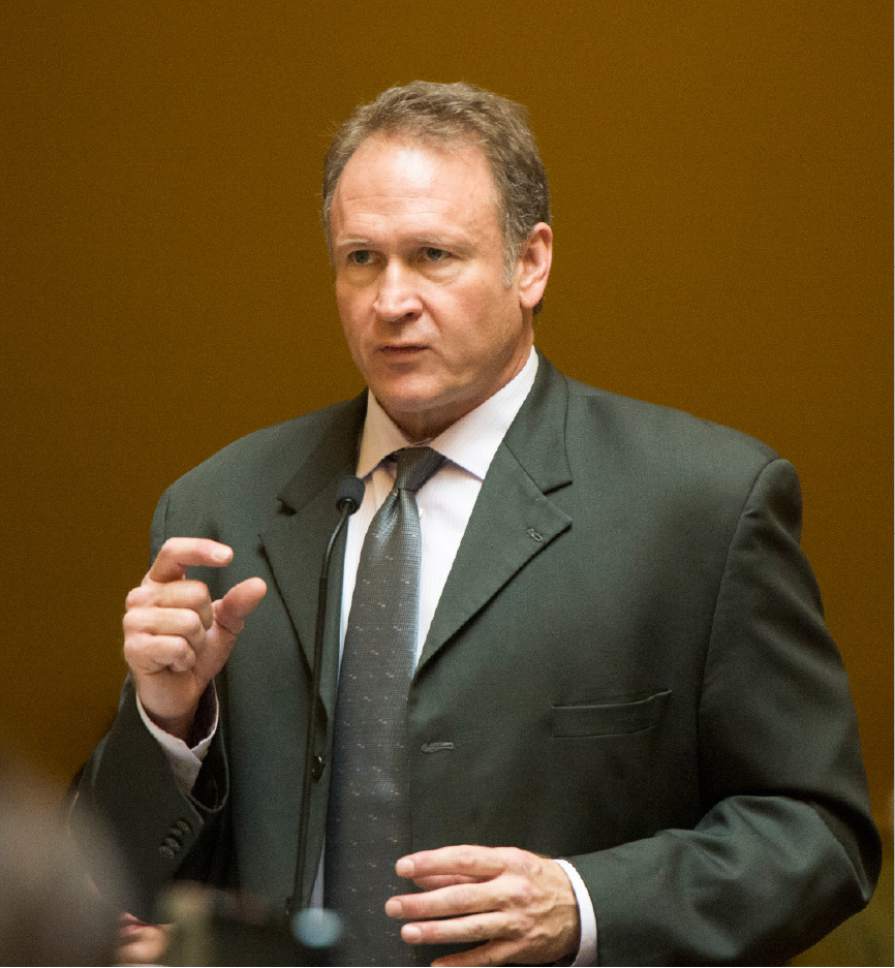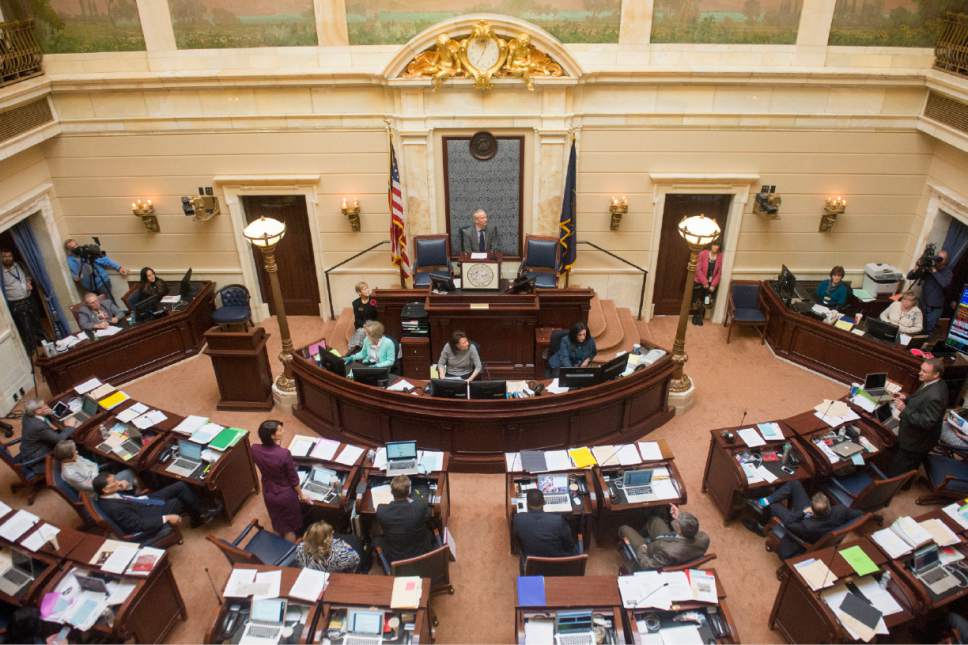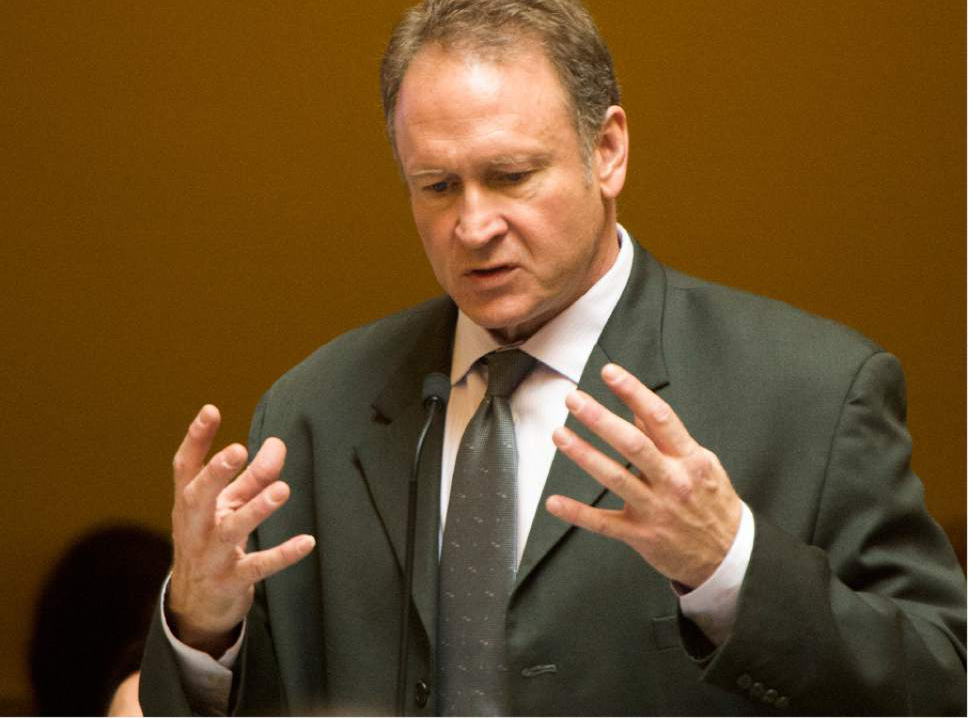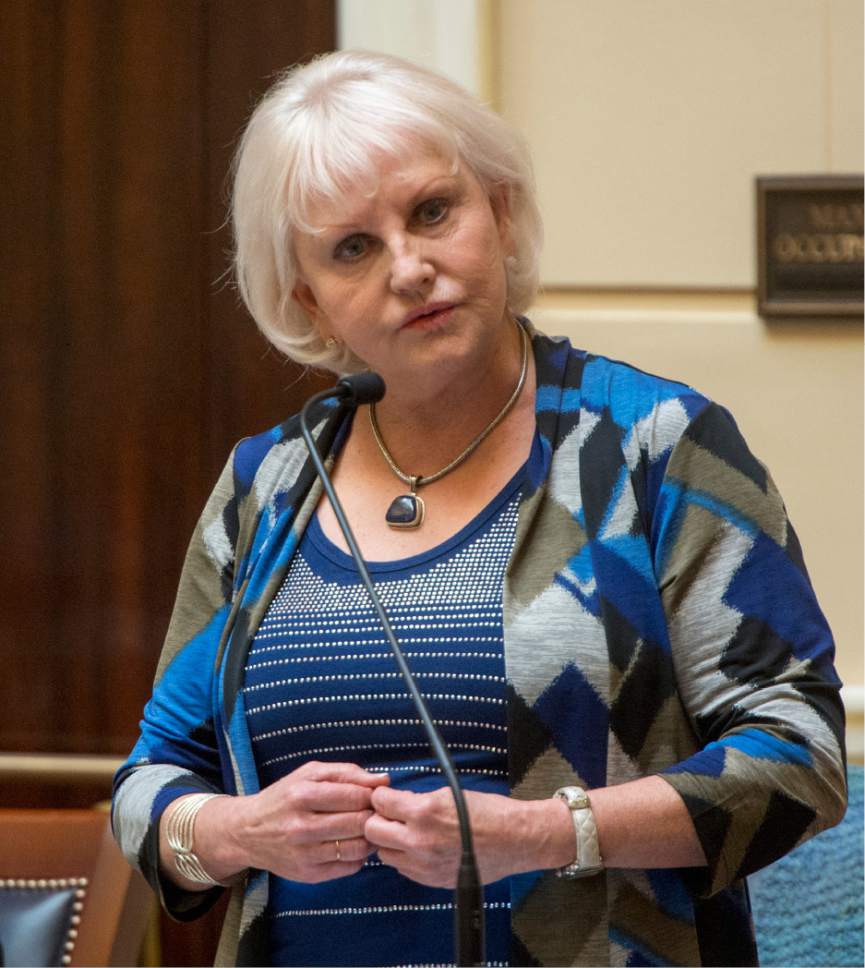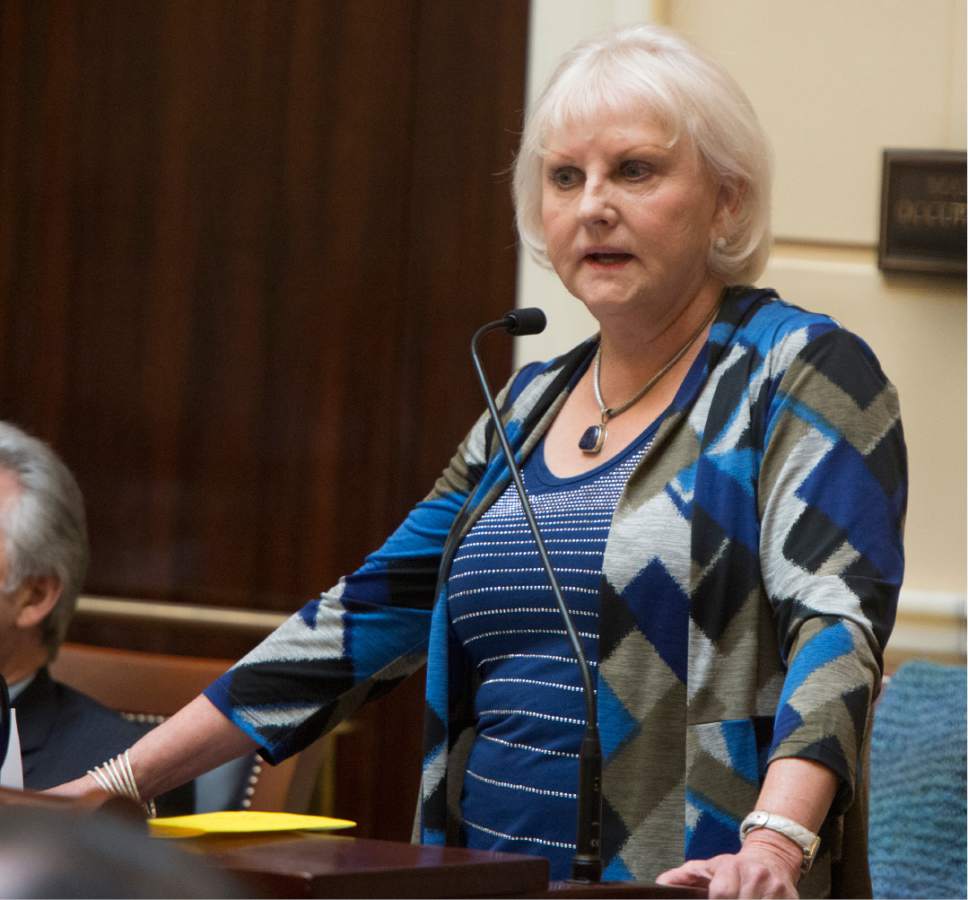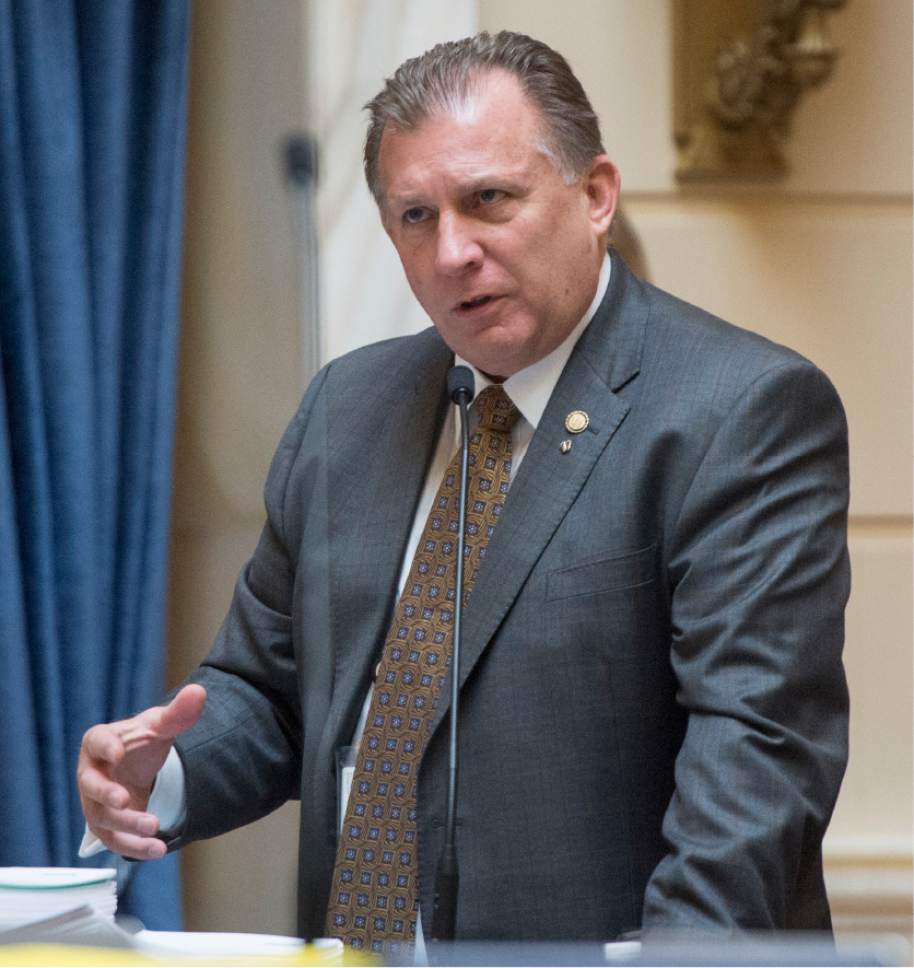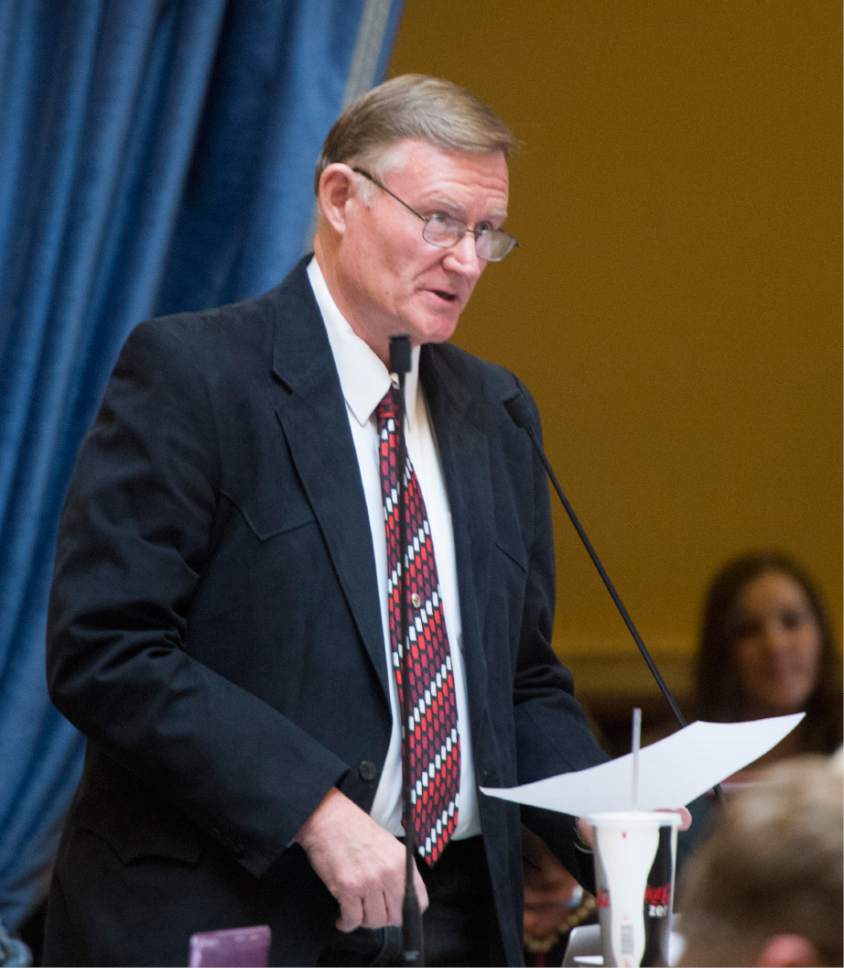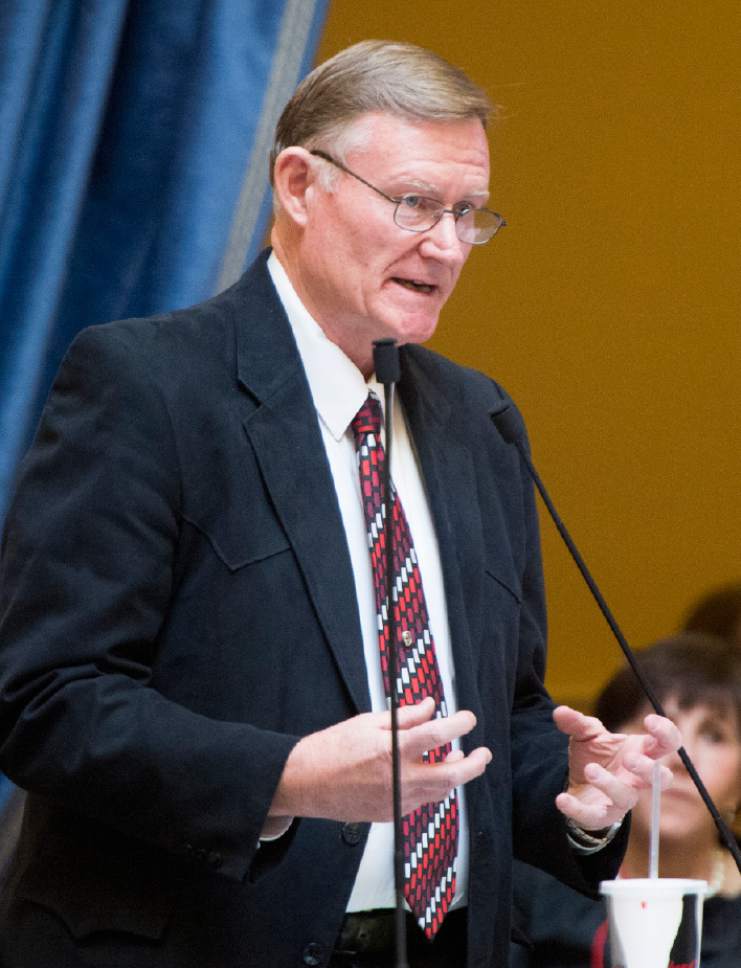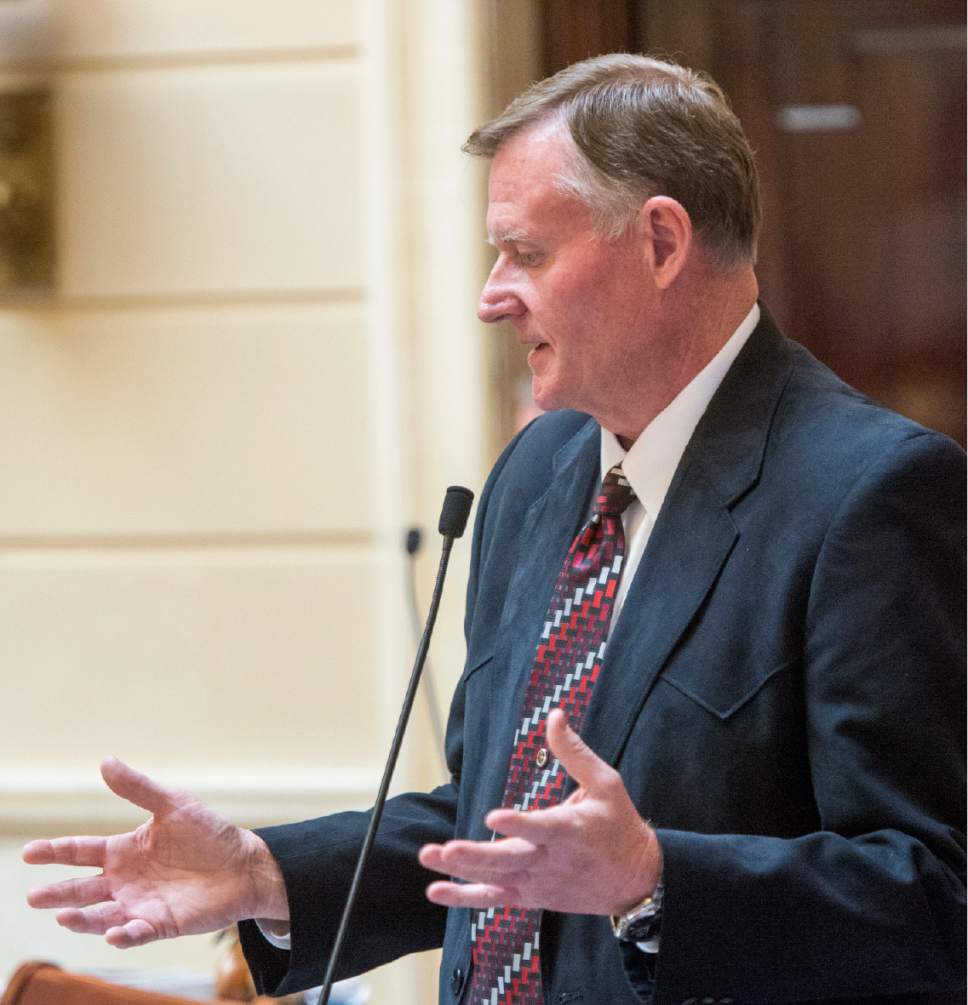This is an archived article that was published on sltrib.com in 2016, and information in the article may be outdated. It is provided only for personal research purposes and may not be reprinted.
With patients and advocates for the legalization of medical marijuana in the audience, Utah senators gave preliminary approval Friday to an incremental step to deal with cannabis, while a more sweeping bill that appeared in jeopardy may have been given new life.
Senators backed SB89 sponsored by Sen. Evan Vickers, R-Cedar City, that would allow the use of cannabidiol extracts from marijuana plants that do not contain THC — the psychoactive drug in marijuana — for treatment of epilepsy and other ailments.
Critics of Vickers' bill have said it doesn't go far enough to help patients who say they need access to all of the chemicals in marijuana in order to treat their illnesses, but Vickers argued his bill is a cautious first step that avoids problems he says have arisen in other states that legalized medical marijuana.
"I realize this is incrementalism but incrementalism is not a bad thing, especially if you're trying to do something this vast and dangerous," Vickers said.
The senator argued that states that have legalized medical marijuana have seen teen use of marijuana and opiate overdoses rise and it makes sense for Utah to move cautiously.
"The state has never done anything remotely like this and we need to have our eyes wide open as we contemplate the magnitude of this policy," said Vickers, whose bill was moved toward final Senate consideration by an overwhelming 26-3 vote.
But Sen. Mark Madsen, R-Saratoga Springs, argued that Vickers' bill would leave too many suffering patients without the option of using medical marijuana for their treatment.
Madsen called the cannabidiol products legalized under Vickers' bill a "placebo masquerading as a cure."
"The only thing it will ease is our conscience," Madsen said of Vickers' bill.
Madsen is sponsoring the competing bill, SB73, which would allow patients to use products that contain THC — a bill that has drawn opposition from The Church of Jesus Christ of Latter-day Saints, the state's predominant faith.
Madsen acknowledged that opposition indirectly, and he also made note of the potential for a ballot initiative if legislators don't act.
"I know some very powerful political special interests have been working against this bill," he said. "I also know the people of this state understand this issue, maybe better than some of us in here, and I know they're inclined to take this into their own hands if we don't do this right."
Madsen's bill received a boost Friday when Sen. Todd Weiler, R-Woods Cross, who opposed a medical-marijuana bill last year, said changes Madsen made to his bill made him comfortable that he could support the measure this year.
"We had never had him in our even undecided column. We had always had him as a hard 'No,'" Madsen said.
Weiler explained that the bill this year is better than the one Madsen sponsored last year and, if the Legislature doesn't act, a ballot initiative could succeed and result in a more sweeping medical-marijuana program.
"I'm very concerned that if we don't pass this bill today that this will be an initiative," Weiler said. "It will define the election cycle in Utah this year and I'm very concerned that a much broader bill than this could pass."
Sen. Pete Knudson, R-Brigham City, who also voted against the bill last year, said he supports the bill now.
There was, at times, emotional testimony from senators. Sen. Karen Mayne, D-West Valley City, told of watching her husband, former Sen. Ed Mayne, die from lung cancer. A doctor had told him marijuana would ease his pain, but he said he couldn't make laws as a senator and break them in his home.
"We need this. If we don't go there, shame on us. Is it perfect? No," she said, but imperfect legislation frequently passes the Legislature. "We don't know where we're going, but we know we're going nowhere if we don't take control of what we have."
And Madsen spoke about his own brush with death when a pain-killer patch prescribed for back pain ruptured, flooding his system with the opioid. His family found him unconscious on the couch.
"Do you have the right to tell my kids that you're going to force me to take the stuff that killed me once?" he asked.
Madsen's bill was debated for an hour Friday, but did not get a vote. That will likely come on Monday.
"It is going to be tight," said Senate President Wayne Niederhauser, R-Sandy, who opposes the bill.
Even if the bill makes it through the Senate, it's prospects in the House are bleak.
House Speaker Greg Hughes, R-Draper, said the House seems to fall into three camps — those who want to proceed with extreme caution, those libertarians who want to open the door wider, and those who are uneasy with the science and undecided on the issue.
"On a general analysis, I think the more measured approach that was described, at least to us, in Senator Vickers' bill has been one there has been [a] greater comfort level for than Senator Madsen's," Hughes said.
Madsen made a number of amendments to his bill to address concerns raised by his colleagues and, he believes, those held by the LDS Church.
The amendments removed workplace protections for public employees who use medical marijuana legally; deleted provisions that would have kept cities from using zoning to block dispensaries and grow facilities; allowed random inspections of dispensaries and grow facilities; and prevents dispensaries and grow facilities from being located within 1,000 feet of schools or 600 feet of churches.
Most importantly, the amendments removed "whole plant" access — meaning approved patients would not be able to buy the actual marijuana plant, but only oils, extracts, edibles and other products derived from the plant.
Christine Stenquist, president of the advocacy group TRUCE, said it is disappointing to lose the whole-plant option, but at least Madsen's bill would allow the use of products with all of the chemicals from the marijuana plant and the change was one that her group could live with.
Stenquist also said that Weiler is right that work is moving forward on the ballot initiative and, if it does proceed, it would be broader than Madsen's bill, including whole-plant access for a wider range of illnesses. She said there is also some discussion about whether to legalize recreational marijuana.
Twitter: @RobertGehrke


